What is
Myopia?
Myopia, also known as near-sightedness or short-sightedness, is a condition that makes distant objects appear blurry.3 It can interfere with children’s quality of life, making it harder for them to participate in school, sports, or other daily activities.4,5 Myopia can progress rapidly, particularly in younger children, so it is important to start treatment as soon as it is diagnosed.6

Get to know the symptoms of myopia
01
Close-up objects look clear but distant objects are blurry
02
Complaints of headaches
03
Tired or strained eyes
04
Squinting to see properly
05
Moving closer to the screen
06
Poor concentration

Did you know?
Young children with myopia may not complain or show any signs of having difficulty seeing.3
Start myopia treatment early
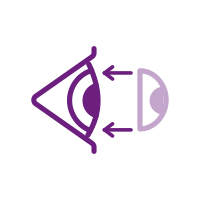



Go beyond treating myopia with MiSight® 1 day
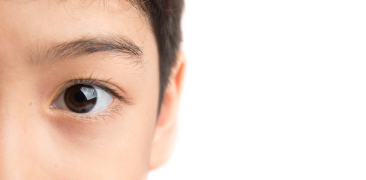
EVIDENCE
MiSight® 1 day contact lenses are proven by 7 years of clinical evidence, in the longest scientific study of soft contact lenses for myopia management7-9


WORLDWIDE EXPERIENCE
MiSight® 1 day contact lenses are worn by children in over 30 countries,10 and an excellent safety profile has been demonstrated11‡


PREFERENCE
9 out of 10 children prefer MiSight® 1 day contact lenses to glasses,1,2*† with children as young as 8 years old being able to confidently apply and remove them on their own1

Go beyond treating myopia with MiSight® 1 day

EVIDENCE
MiSight® 1 day contact lenses are proven by 7 years of clinical evidence, in the longest scientific study of soft contact lenses for myopia management7-9


WORLDWIDE EXPERIENCE
MiSight® 1 day contact lenses are worn by children in over 30 countries,10 and an excellent safety profile has been demonstrated11‡


PREFERENCE
9 out of 10 children prefer MiSight® 1 day contact lenses to glasses,1,2*† with children as young as 8 years old being able to confidently apply and remove them on their own1

Begin your child’s journey with MiSight® 1 day
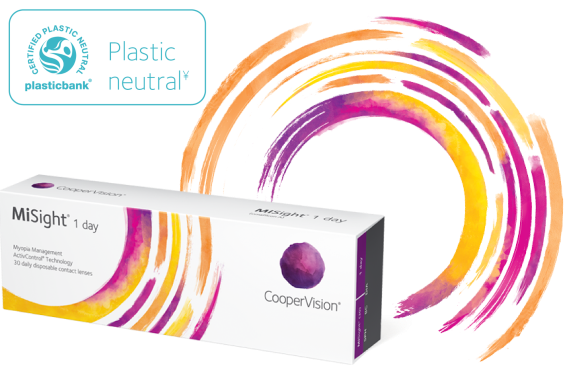

MiSight® 1 day contact lenses for myopia control in children
- Proven by 7 years of clinical evidence, in the longest scientific study of soft contact lenses for myopia management7-9
- Worn by children in over 30 countries10
- Preferred by 9 out of 10 children to glasses1,2*†


Explore more
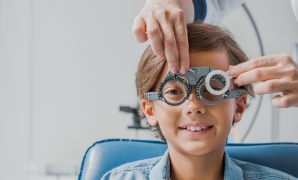
Vision Simulator
See the world through the eyes of a child with myopia.

Could your child be short-sighted?
Discover the causes of myopia and signs you should look out for.
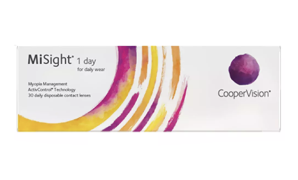
Introducing MiSight® 1 day
Start with MiSight® 1 day, the proven treatment to help slow myopia progression in children.

Contact lenses for first-timers
Learn how to apply and remove your MiSight® 1 day contact lenses.
* 95%–100% of children expressed a preference for contact lenses over glasses at each visit over 36 months.
† ’How much do you like wearing your contact lenses?’ 87/97 (90%) Top box ‘I like contact lenses the best’ Subjective response at 60 months.
‡ MiSight® 1 day contact lenses were worn for a total of 469 patient-wearing years in a clinical study, with no serious side effects recorded in relation to contact lens wear.
¥ Plastic neutrality is established by purchasing credits from Plastic Bank. A credit represents the collection and conversion of one kilogram of plastic that may reach or be destined for waterways. CooperVision purchases credits equal to the weight of plastic in our contact lens orders in a specified time period. Contact lens plastic is determined by the weight of plastic in the blister, the lens and the secondary (outer carton) package, including laminates, adhesives, and auxiliary inputs (e.g. ink).
References
1. Sulley A et al. Optom Vis Sci 2019;96(E-abstract):195252.
2. CooperVision® Data on File, 2023.
3. American Academy of Ophthalmology. Nearsightedness: What Is Myopia? [Internet] [cited 2022 Sep 06] Available from: aao.org/eye-health/diseases/myopia-nearsightedness
4. Lamoureux EL et al. Invest Ophthalmol Vis Sci 2008;49(13):4469.
5. Chua SYL, Foster PJ. The Economic and Societal Impact of Myopia and High Myopia. In: Ang M., Wong T. (eds) Updates on Myopia. 2020. Springer, Singapore.
6. Zadnik K et al. Invest Ophthalmol Vis Sci 2004;45(13):2306.
7. Chamberlain P et al. Optom Vis Sci 2019;96(8):556–7.
8. Chamberlain P et al. Optom Vis Sci 2022;99(3):204–12.
9. Chamberlain P et al. Optom Vis Sci 2021;98(E-abstract):210049.
10. CooperVision data on file.
11. Woods J et al. Cont Lens Anterior Eye 2021;44(4):101391.
MiSight® 1 day soft contact lenses for vision correction and control of the progression of myopia. Your optometrist will advise if this product is right for you. Always read the label and follow the directions for use (https://coopervision.co.nz/patient-instruction).
SA13020





